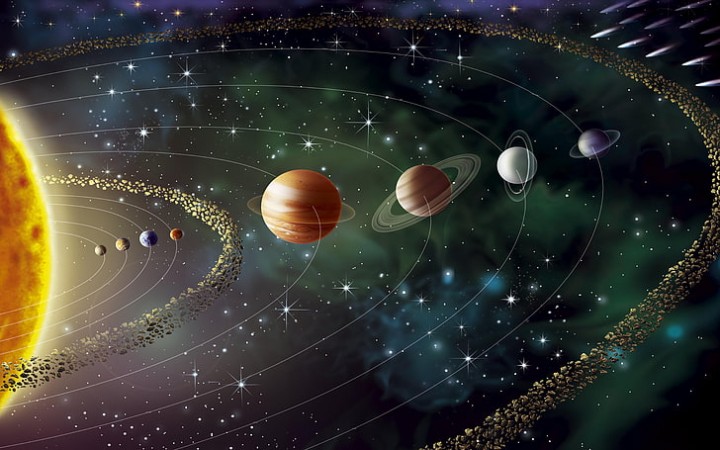
Have you ever looked up at the night sky and wondered about the vast expanse of the universe? The twinkling stars and mysterious planets have captivated human imagination for centuries. In this article, we will delve into the intriguing realm of celestial bodies, focusing on the number of planets in our solar system and their significance. From the familiar planets we learned about in school to the lesser-known ones, each plays a unique role in our understanding of the cosmos.
The Wonders of the Night Sky
When you gaze at the night sky, you're witnessing a breathtaking tapestry of stars, planets, and other celestial wonders. These luminous bodies have sparked human curiosity, inspiring us to explore and uncover the mysteries of the universe.
The Solar System Unveiled
The Inner Planets (Mercury, Venus, Earth, Mars)
The inner planets, also known as terrestrial planets, are those closest to the Sun. Mercury, Venus, Earth, and Mars share similarities such as rocky surfaces and relatively smaller sizes. Earth, of course, is of particular significance to us as the home to a diverse range of life forms.
The Outer Planets (Jupiter, Saturn, Uranus, Neptune)
Beyond the inner planets lie the gas giants: Jupiter, Saturn, Uranus, and Neptune. These massive planets are predominantly composed of hydrogen and helium, and they boast impressive systems of rings and moons. Jupiter, for instance, hosts the Great Red Spot, a colossal storm that has raged for centuries.
The Dwarf Planets (Pluto, Eris, Haumea, Makemake)
In 2006, Pluto's classification as a planet was controversially changed to that of a dwarf planet. Alongside Pluto are other dwarf planets like Eris, Haumea, and Makemake, each contributing to our understanding of the outer reaches of the solar system.
Planetary Formation and Evolution
The Birth of Planets
Planets form from the protoplanetary disks of dust and gas that surround young stars. Over millions of years, gravitational forces and collisions lead to the aggregation of matter, eventually forming planets.
Shaping Planetary Characteristics
Various factors influence a planet's characteristics, including its distance from the Sun, composition, and geological activity. For instance, Earth's unique combination of a breathable atmosphere, liquid water, and tectonic activity has created a haven for life.
Importance of Planetary Study
Insights into Earth's History
Studying other planets provides valuable insights into Earth's past. By comparing geological features and climates, scientists can better understand the processes that shaped our planet over billions of years.
Exoplanetary Research and Astrobiology
The study of planets beyond our solar system, known as exoplanets, fuels the search for extraterrestrial life. By identifying habitable conditions and biosignatures, researchers are inching closer to answering the age-old question: Are we alone in the universe?
Beyond Our Solar System: A Glimpse into Exoplanets
Advancements in technology have allowed us to detect and characterize exoplanets. From scorching hot worlds to potentially habitable ones, these discoveries broaden our perspective on the sheer diversity of planets.
The Mystique of Pluto: Demotion and Debate
Pluto's reclassification ignited debates about the criteria for planet-hood. While no longer part of the primary planets, Pluto remains an object of fascination, with NASA's New Horizons mission providing unprecedented images and data.
Pioneering Space Exploration: Voyager and New Horizons
The Voyager and New Horizons missions have revolutionized our understanding of the outer planets. Voyager's grand tour of the outer planets revealed stunning details, while New Horizons' flyby of Pluto astonished scientists and the public alike.
The Search for Extraterrestrial Life
As technology advances, our ability to search for signs of life on other planets improves. From extremophiles on Earth to the potential for subsurface oceans on moons like Europa, the quest for life beyond Earth continues.
The Role of Planets in Mythology and Culture
Throughout history, planets have held profound cultural and mythological significance. From ancient deities to celestial omens, these cosmic bodies have woven themselves into the fabric of human beliefs and stories.
Our Cosmic Journey
Contemplating the number of planets in our universe invites us to reflect on the beauty and complexity of the cosmos. Each planet, with its distinct characteristics and mysteries, contributes to the grand tapestry of existence.
Driving Excellence: A Comprehensive Review of the WagonR